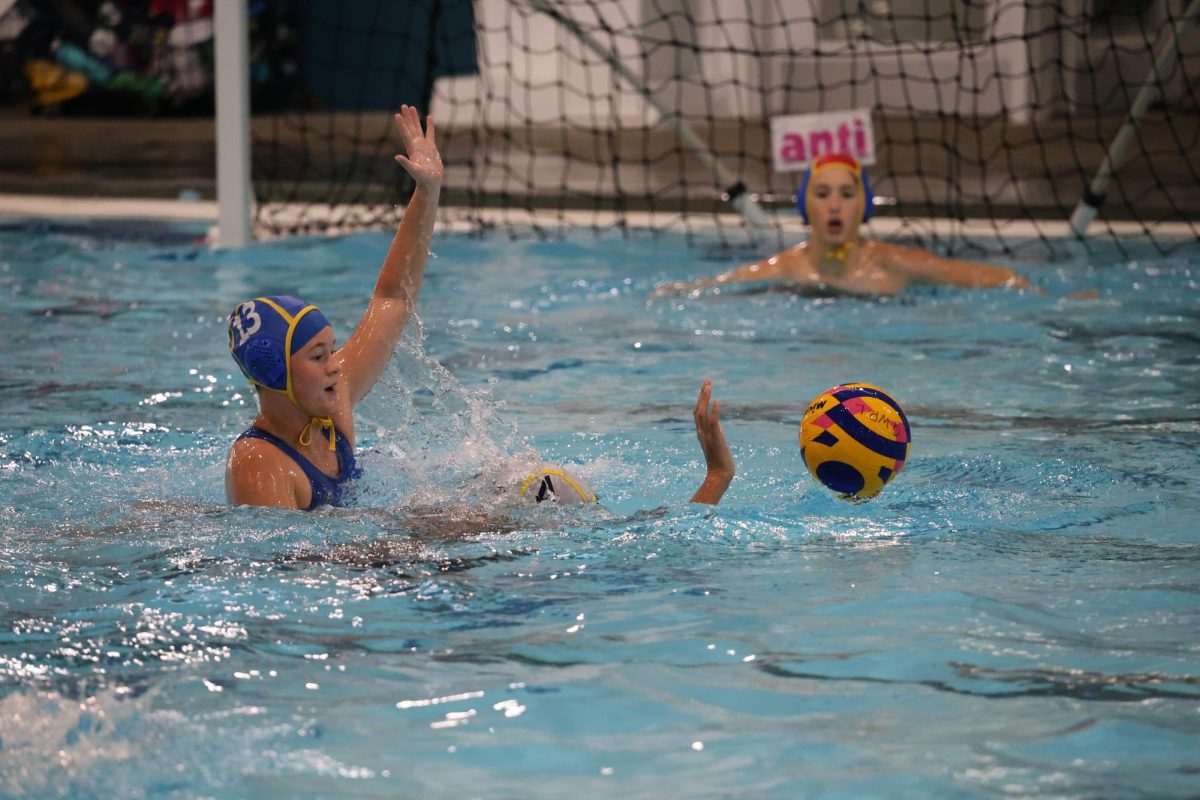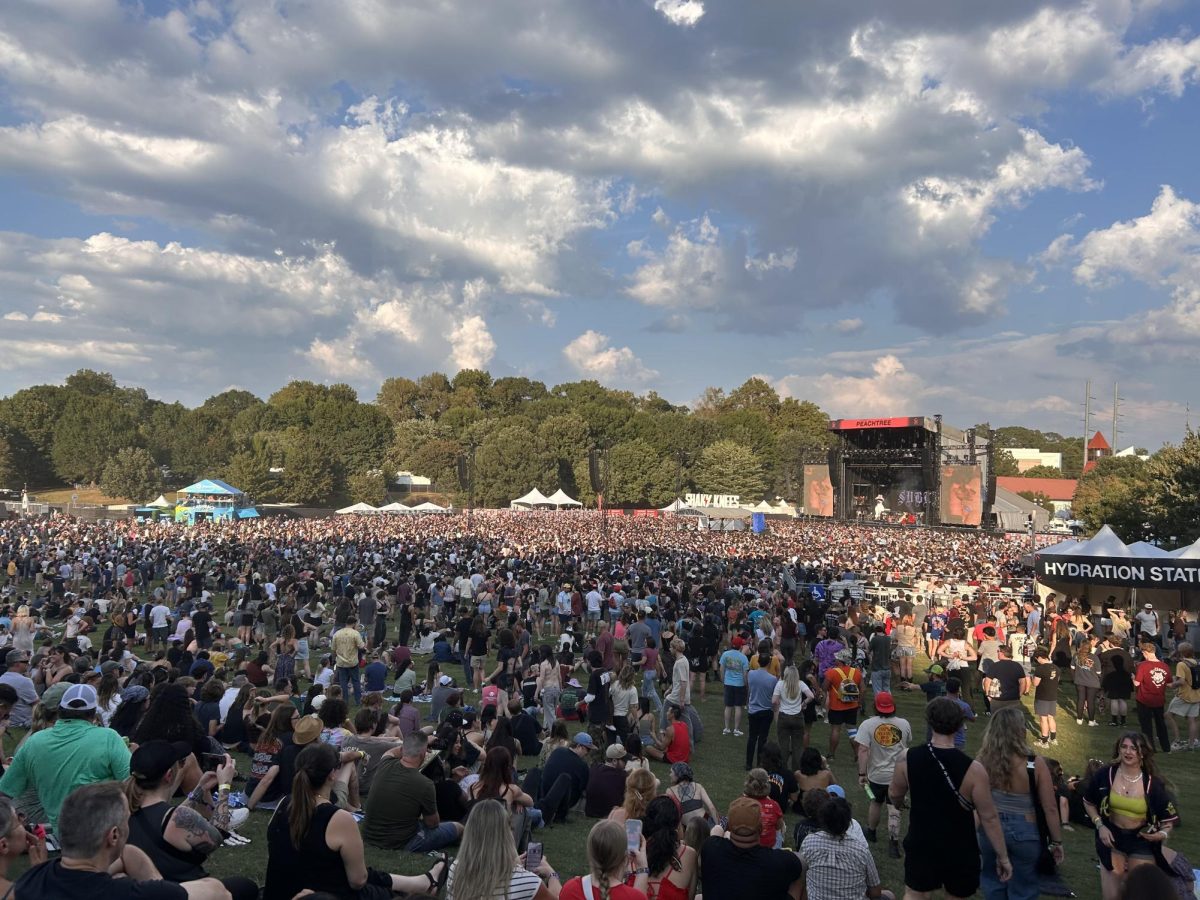A Defense of Greta Thunberg, From a Fellow 16-Year-Old
October 21, 2019
I first discovered Greta Thunberg because of a viral image of her, where she is pictured seated at the French Parliament with other teen climate crisis activists. Widely circulated, I am sure that the image gained ground due to its poignancy; with her head tilted upwards and her eyes indignant, Greta looks like the epitome of a young, angry activist—her expression akin to a baroque portrait, chiaroscuro and all.
From then on, Greta Thunberg became someone that I began to follow more closely. With her #FridaysforFuture climate strike movement and most recently, her speech at the United Nations Climate Action Summit, she has proved her influence and dedication, time and time again.
Following her UN Speech, I came across a New York Times opinion piece about Greta Thunberg, written by author Christopher Caldwell. Now, I’m not sure if the NY Times editors were asleep when this was published because this article has to be one of the biggest dips in their opinion-piece quality thus far.
In his op-ed, Caldwell states that he has a problem with Greta’s intensity, her “radical approach,” as he calls it. He zeros in on her saying that action to prevent the climate crisis is urgent and needs to happen now, deducing her words to radicalism. He says her stance “threatens democracy” because the democratic process requires patience, not passion.
But what Caldwell comes across as is someone who doesn’t understand activism. He simply cannot comprehend that the process of waiting and seeing has always failed to bring about change. It’s a process that Dr. Martin Luther King, Jr. himself criticized in his Letter from Birmingham Jail. In a dire situation, hesitation guarantees imminent doom.
And I’m sure that he is loath to admit it, but it appears that Caldwell’s problem doesn’t lie with Greta’s “undemocratic” activism, but more with the fact that she is young, competent, and creating a stir.
Not to mention, Caldwell’s writing reeks of condescension. Although he tries to keep the tone mild, cool and detached, he comes across as disgustingly cavalier. Constantly, he tries to diverge the topic by mentioning Greta’s “crude words” or autism, finally settling on her “radical, un-democratic approach” to criticize.
I’ve noticed that most of the adults that pick Greta’s pleas apart aren’t necessarily criticizing her stance on climate change; instead, they’re focusing on something else: her famous parents, her rhetoric, her age. And time after time, each gripe, jab and attack seems to either be a thinly-veiled case of climate change denial or an onset superiority complex.
It doesn’t help that Greta’s stance is simple enough to be indisputable; she wants adults to take action in order to reverse climate change. Anyone that tries to argue with such a request is automatically seen as ignorant and uninformed. Therefore, Greta’s more sane critics go for the low jab—the occasional patronizing remark. Rather than outing themselves as global warming skeptics, they resort to focusing on the details of her background in an attempt to pierce her ethos.
In some cases, I suspect that Greta’s critics do not even care about what she is saying. Instead, they are clearly uncomfortable with the fact that she is a minor in a position powerful enough to be telling them what to do. In that case, I think this is more of a personal problem than a problem with Greta herself. Still, politics is no place for insecurity.
The point is, Greta’s background should not be scrutinized as much as it is. I constantly see people complaining about her “virtue-signaling” trip via sailboat to the UN Climate Summit or about her dramatic, “panic-instilling” speeches. Still, it is far more important that the public focuses on her message than on the way she delivers it. Greta herself isn’t necessarily asking us to support her; she’s asking us to support a solution to the climate crisis.
But alas, I’m not expecting my defense of Greta to even reach the adults that belittle her. After all, I’m guilty of the same crime that she is; I’m 16 and angry, and according to them, that makes me the ignorant one.











Nayia • Oct 22, 2019 at 3:16 pm
You and Greta have no choice but to be your age and have no choice but to speak the way you speak, but If we listen we have a choice. To act before it’s too late.
Excellent Iris.I love the fact that your articles are solidly argumented and at the same time, free spirited and accurately and realistically emotional. Go forth young spirit!!!
Angelos • Oct 22, 2019 at 10:03 am
Congratulations on your article and we hope to save the earth before it’s too late
Odysséas • Oct 22, 2019 at 9:44 am
Nice article, very well written. Thank you for your analysis.